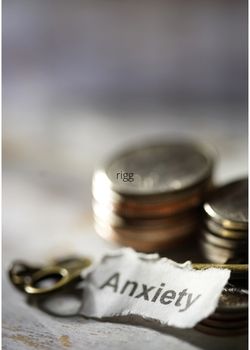Get Help With Alcohol Addiction
- Find meetings near you
- Discover online or in person meetings
- Get 24 hour information on addiction

It’s very common for people with substance use disorders to relapse during recovery, especially if they do not seek help when triggered.1 Factors such as depression, stress, and cravings can all make you vulnerable to relapse triggers, as well as levels of certain hormones and neurotransmitters like cortisol and brain-derived neurotrophic factor.2 Places or situations that cause anxiety or other negative emotions can also be major triggers in recovery. That’s why it’s important to recognize the warning signs when a place is triggering for you.
Avoiding triggering places and situations is crucial to recovery, especially in the early stages.3 Understanding your triggers and having a plan for responding to them is critical for avoiding relapse and remaining sober. Familiarize yourself with the warning signs and arm yourself with methods to deal with relapse triggers when they occur.
Call 800-839-1686 Toll Free. Privacy Guaranteed. No Commitment.
Help is standing by 24 hours a day, 7 days a week.
Warning Signs a Place is Triggering
#1 You Feel Stressed
Stress is a major cause of relapse, especially if you’ve used drugs or alcohol to cope with stress in the past.4
 While you can’t eliminate stress from your life, you can make an effort to avoid places or situations that are major sources of stress for you.
While you can’t eliminate stress from your life, you can make an effort to avoid places or situations that are major sources of stress for you.
When you feel stressed and find yourself wanting to use drugs or alcohol, take a moment to notice how you’re feeling. What is causing the stress? Acknowledge the signs a place is potentially triggering for you. Make a list of all the places or situations that cause you extreme stress. Can you remove yourself from any of these situations?
If you’re in a toxic work environment or unhealthy living situation, this may be difficult. However, you can begin to take steps to look for a new job or a new place to live. Major lifestyle changes of this sort are often discouraged during the first year of recovery as they can create additional stress.3 However, in some cases, they may be necessary if your current situation is triggering for you. If you find yourself needing to make major changes right away, make sure you have plenty of support.
If removing yourself from the stressful situation isn’t an option, find and implement other ways of managing stress – either a technique that you learned during recovery or other methods that work for you. Exercise, yoga, and meditation are all excellent forms of stress management. Not only does exercise help reduce stress, but it can also help with feelings of anxiety or depression.5 Even something as simple as a ten-minute walk can have profound mental health benefits.
#2 You Have Feelings of Agitation or High Emotion
Stress isn’t the only emotion that can be triggering. All kinds of emotions can serve as signs of relapse triggers, such as anxiety, depression, agitation, resentment, moodiness, anger, and defensiveness.3 If any of these emotions are left unresolved, they can contribute to the stress that can lead to relapse.
It’s important to recognize that emotions themselves aren’t good or bad. We all experience both positive and negative emotions throughout our daily lives. The important thing is learning how to respond to these emotions healthily. You can’t always control how you feel in a given situation, but you can control your behavior. Don’t simply try to ignore negative emotions, as this can backfire – negative emotions can build up until they become unbearable, which can then trigger a relapse.
As with stress, try gaining a greater understanding of any unpleasant or triggering emotions. Practice becoming more aware of your emotions and what triggers them. Why do you feel the way you do? Is there a different way you could look at the situation that is causing the negative emotion?
Being able to anticipate a triggering situation can help you stay one step ahead of your triggers and respond to them more healthily and productively. Use your anxiety or nervous energy to do something productive. For example, clean your house, exercise, go for a walk, or attend a recovery meeting.
#3 You Feel Pressured or Compelled to Use Alcohol
People in recovery often have to make changes to their social life.3 If you are a part of social circles in which drugs and alcohol are regularly used, your friends and peers may not be supportive of your sobriety. They may even attempt to sabotage your recovery. If your social group or close friends are pressuring you to use drugs or alcohol, you will need to set boundaries and avoid situations where other people are using.
If you feel pressured to drink in social situations, remove yourself from the situation if possible. Refuse to meet friends in bars or other places where alcohol gets served. Instead, suggest meeting friends for coffee or getting together for outdoor activities such as mountain biking or hiking.
If your friends are still pressuring you to use alcohol, you may have to decide to cut ties with them. Socialize only with people you can trust to support you in your sobriety. To avoid feelings of isolation and loneliness, work on building supportive sober friendships with people from support groups, faith-based organizations, or other community groups.
#4 You Have Strong Memories of Using Alcohol in the Space
 Sometimes, a specific location creates warning signs that a place is triggering. Perhaps your company’s annual Christmas party has always been an occasion for drinking excessively. Or maybe you’ve always been in the habit of coming home from work and immediately pouring yourself a drink.
Sometimes, a specific location creates warning signs that a place is triggering. Perhaps your company’s annual Christmas party has always been an occasion for drinking excessively. Or maybe you’ve always been in the habit of coming home from work and immediately pouring yourself a drink.
If a specific place is triggering for you, avoid it if possible.3 You have the right to remove yourself from places or situations that are relapse triggers. Especially if you are new to recovery, the temptation to use drugs or alcohol may be too great.
Tell your boss you can’t make the Christmas party or RSVP with regrets to your cousin’s wedding where there will be an open bar. Your health and recovery are more important than someone else’s hurt feelings.
If your own home is a triggering space for you, change things up. Many things in our home environments can be sources of anxiety, such as clutter, some colors, bad smells, and harsh lighting.
Set aside some time to deep clean and redecorate your home. Turn it into a comforting, inviting place instead of a space that creates anxiety or invites the use of drugs or alcohol.
#5 You Have Strong Negative Emotions Associated With the Space
Certain places can also stir up negative emotions or bad memories. If your childhood was turbulent, then going home for Thanksgiving may be triggering.
Again, if a certain place or setting causes stress or anxiety for you, avoid it to whatever extent possible. Pay attention to the warning signs when a place is triggering for you. Suggest an alternative location for family gatherings, or skip events at triggering locations altogether.
Mitigating Relapse Triggers in the Moment
If you find yourself faced with a triggering event or place, be prepared with techniques you can use to either resist the triggers or remove yourself from the situation entirely. Remember, you don’t owe anyone else an explanation if you feel your recovery is in jeopardy. If you’re feeling triggered, take a moment before making any decisions you may regret later.
Try one or more of these techniques to regain perspective in a triggering situation:
- Step outside to “take a call.”
- Fake an emergency. Tell your friends something has come up, and you need to leave – and leave it at that.
- Excuse yourself and go to the restroom. Take a moment to check in with your emotions. What about the situation is making you want to drink? How else can you respond to your emotions?
- Step outside and call your sponsor or another trusted person who can help you work through the situation.
Call 800-839-1686 Toll Free. Privacy Guaranteed. No Commitment.
Help is standing by 24 hours a day, 7 days a week.
How to Avoid Triggering Places
One of the best ways to break a bad habit is to replace it with a new, healthy habit.6 If certain things about your daily routine or social life feel triggering, look for activities or patterns you can adopt to help remove those triggers from your life.
If you’ve been in the habit of going out to happy hour after work, join a gym and replace happy hour with an after-work workout. If weekend nights used to be reserved for bar-hopping, find and commit to attending a support group that meets during those times. Find a new favorite hangout that doesn’t serve alcohol, like a coffee shop or a café instead of a bar.
Avoiding triggering places as much as possible will help you remain on the path to recovery and thrive in sobriety.
Call
800-948-8417
Calls are forwarded to these paid advertisers
to learn about flexible treatment programs for drug and alcohol addiction.
Resources
- US National Library of Medicine. (2006, February.) Rates and predictors of relapse after natural and treated remission from alcohol use disorders. National Institutes of Health.
- Current Psychiatry Reports. (2011.) New Findings on Biological Factors Predicting Addiction Relapse Vulnerability.
- Yale Journal of Biology and Medicine. (2015, September 3). Relapse Prevention and the Five Rules of Recovery. National Center for Biotechnology Information, U.S. National Library of Medicine.
- US National Library of Medicine. (2012). How Does Stress Lead to Risk of Alcohol Relapse? National Institutes of Health.
- Anxiety & Depression Association of America. Exercise for Stress and Anxiety.
- Harvard Health Publishing. (2016, November 9.) Trade bad habits for good ones. Harvard Medical School.